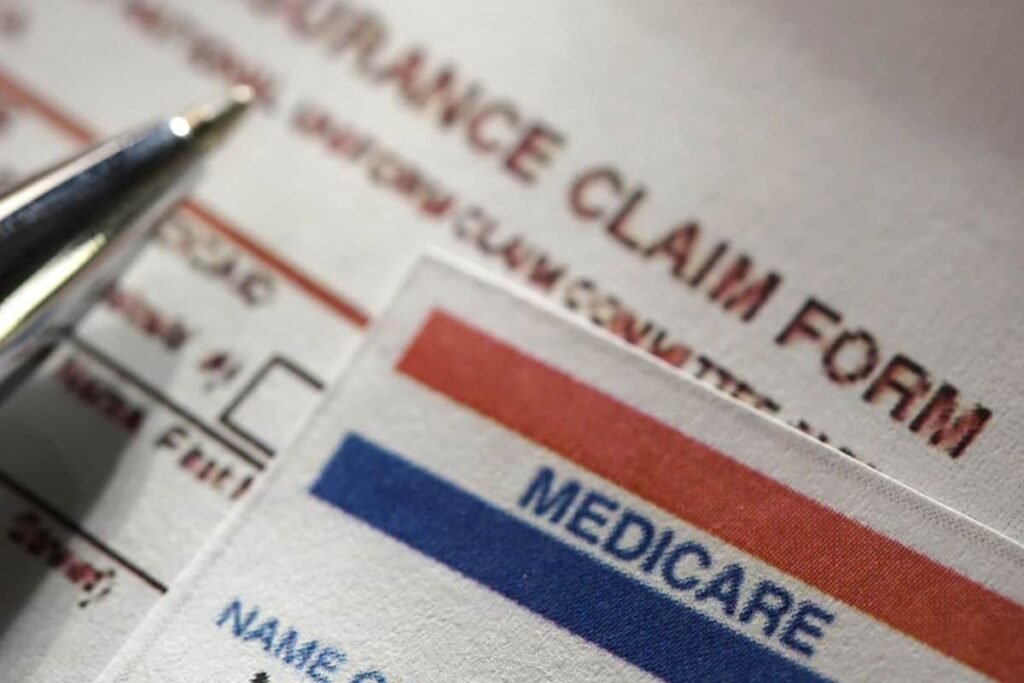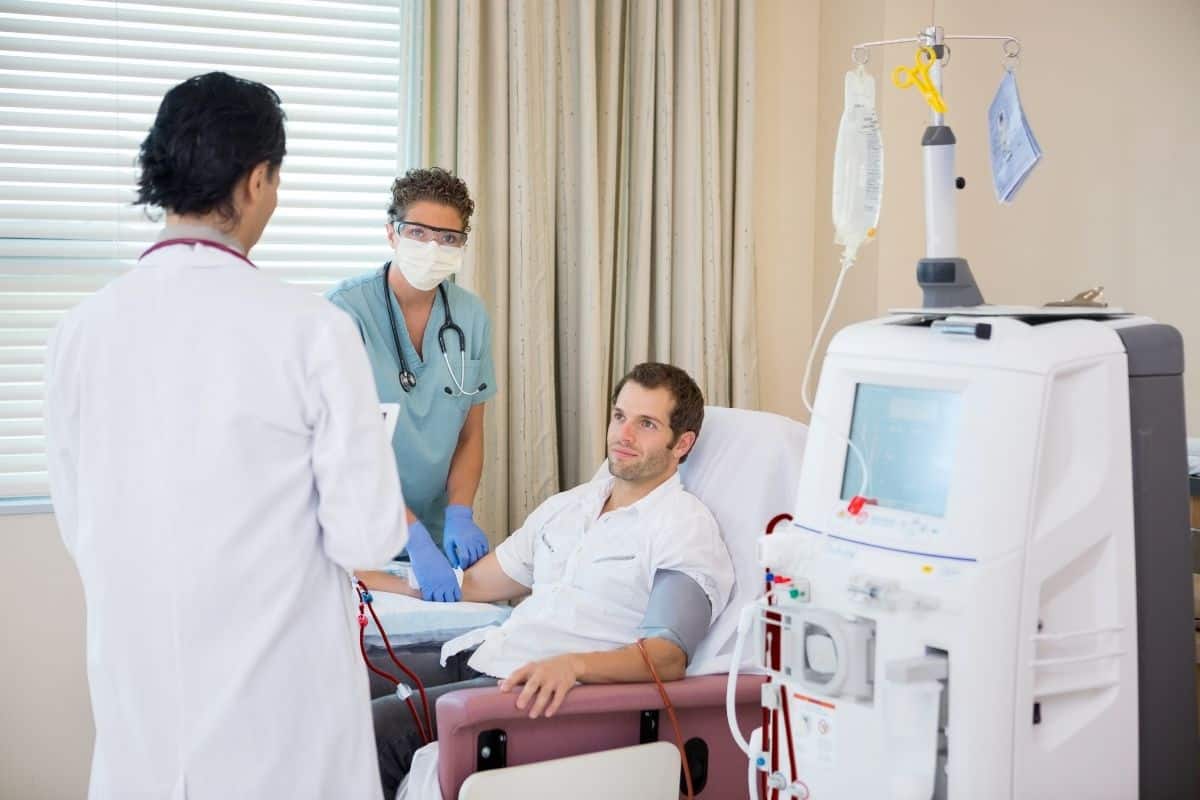When the kidneys in our body no longer work properly on their own, then many patients need to have dialysis.
Dialysis is a treatment that removes waste products and fluids from the blood when the kidneys are no longer able to do this.
In the US medical treatments can be incredibly expensive. For patients who have chronic illnesses, this can be quite daunting. However, there are certain health insurances that will help to cover the cost of treatment.
Medicare is insurance that is provided by the government. If you or someone you know needs to know if Medicare will cover dialysis, then you have come to the right place.
This article will cover whether or not Medicare covers dialysis and any information related to this question.
Table of contents
What is Medicare?
Medicare is a national health insurance program by the government. This program is primarily for people who are over the age of 65, although there are exceptions for younger people who have disabilities.
This program is also for people with End-Stage Renal Disease. End-Stage Renal Disease is the final stage of chronic kidney disease where the kidneys can no longer work properly on their own.
Those with End-Stage Renal Disease require dialysis or need a kidney transplant.
What are the Parts of Medicare?

Before we look at whether Medicare covers dialysis, it is important to understand how Medicare works and the different parts of Medicare.
Medicare is broken down into different parts that cover certain services. The first part is called Medicare Part A and it is hospital insurance.
Part A of Medicare covers patient stays at the hospital, hospice care, stays and cares in special nursing facilities, and some home health care treatments.
Medicare Part B is medical insurance that covers outpatient care, preventative services, some doctor’s services, and medical supplies.
Medical Part D covers prescription drugs and some vaccines or shots.
Does Medicare Cover Dialysis?
As mentioned before, Medicare is for people with End-Stage Renal Disease, meaning they would need dialysis.
So, Medicare can cover dialysis if you are eligible but the eligibility for dialysis coverage is different for those who are eligible for Medicare based on End-Stage Renal Disease.
As long as you are eligible, Medicare can help to cover the cost of dialysis.
Medicare Part A covers dialysis if you have been admitted to the hospital due to needing special care. This would be inpatient dialysis treatment.
If you are having outpatient dialysis treatments then this can be covered by Medicare Part B. This part of the Medicare program can help to cover treatments you get at a dialysis facility, one that is Medicare certified.
If you are someone that is eligible for home dialysis, then Part B covers training for you and the person that is going to help you with your treatment.
However, when it comes to equipment for home dialysis, Medicare Part B only covers the cost of some equipment such as the dialysis machine.
Medicare Part B also covers support that you might need if you are eligible for home dialysis. For example, Medicare Part B might cover visits from trained healthcare workers coming to monitor your home dialysis.
Medicare Part B can also cover the costs of certain drugs you might need as a result of End-Stage Renal Disease and other services relating to this.
What Does Medicare Not Cover?
Medicare does not cover the cost of everything involved with dialysis treatment. Here is a list of what it does not cover:
- Pay lost to you and the person helping you during dialysis training.
- Cost of the place you are staying during treatment.
- Aides that are paid and are helping you with your home dialysis.
- Blood or red blood cells for home dialysis with the exception they are part of your doctor’s services.
Eligibility for Coverage

As mentioned earlier you need to be eligible for Medicare in order for it to cover the costs of dialysis.
Eligibility for coverage can vary, for example, if you don’t enroll straight away or you miss the enrollment period you might be eligible for retroactive coverage from the first day you do enroll.
What this means is if you become eligible for Medicare due to End-Stage Renal Disease in March but you enroll in November, your coverage will start in March. However, it is best to enroll in the initial 7-month enrollment period.
Those who are already having dialysis are eligible for coverage by Medicare from the first day of the fourth month of their treatment.
However, Medicare coverage can begin from the first month if you participate in home dialysis training by a dialysis facility that is Medicare certified for the first three months of your treatment.
Also, your doctor needs to believe and expect that you will be able to finish this training and be capable of doing your own dialysis.
What Will You Pay?
If you have the original Medicare then for dialysis treatment at a Medicare-approved dialysis facility, you will pay 20% of the cost, and Medicare will pay 80% of the fees. With this, you will also have to pay the Medicare Part B deductible.
If you have Medicare coverage and have been admitted to a hospital for dialysis then the cost of the treatment is completely covered by Medicare Part A.
With the original Medicare, for home dialysis, Medicare will pay a fee to your doctor for supervised home training. You will cover 20% of the fee and Medicare will cover the remaining 80%.
There is also the yearly deductible for Part B that you have to pay.
Final Thoughts
Medicare does cover dialysis treatment. However, what it covers depends on the Medicare program you are eligible for. Whilst Medicare helps to cover the costs of dialysis, you should expect to pay part of the cost.
We hope this article has clarified any misconceptions you may have had about Medicare coverage. Please share this article with others who might also benefit from this information. Thank you for reading.
Frequently Asked Questions
The average cost of Dialysis Treatment in India is approximately Rs. Rs 4000 to 15000. However, the prices may vary depending upon the hospitals in different cities.
In 1972, President Nixon and Congress signed a bill ensuring free dialysis and renal transplants for US citizens. On average, Medicare covers 80% of dialysis costs. Medicare covers most of the costs for kidney transplants, and Medicare B covers 80% of immunosuppressant medication costs.
Medicare coverage usually starts on the first day of the fourth month of your dialysis treatments. This 4-month waiting period will start even if you haven’t signed up for Medicare.
